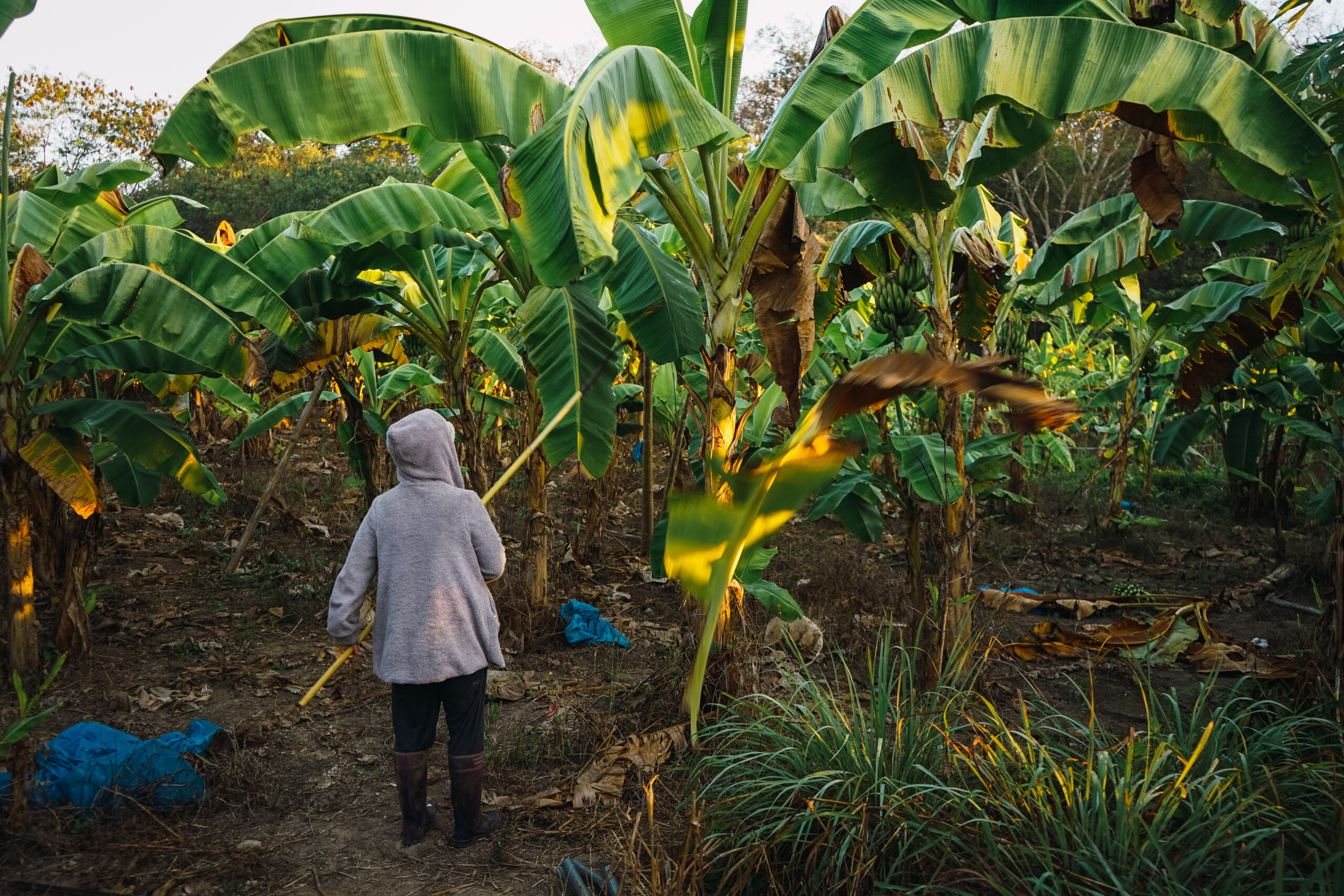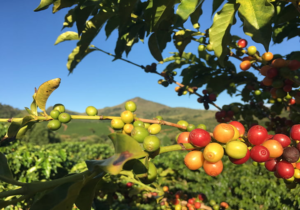Human rights impact assessments in food supply chains – what have we learnt?
Posted by Kate Jelly

During 2021, Ergon completed six human rights impact assessments (HRIAs) for supermarket clients focused on various global food supply chains, ranging from avocados to tuna, with more in the pipeline. HRIAs are a relatively recent addition to the due diligence toolbox – at least for food supply chains (they’ve been around longer in the extractive sector where we also have ongoing HRIA projects) – but are becoming increasingly popular as a means for understanding issues and, importantly, what can be done to mitigate them. They are also a response to growing pressure from civil society and consumers – in tandem with rapidly increasing legal obligations.
Our recently completed HRIAs were on coffee from Brazil, avocados from Peru, Brazil nuts from Bolivia, citrus from Spain, fish (global) and bananas from Colombia. This blog sets out our reflections on what this crop of studies can tell us about issues in fresh food supply chains.

Impacts on workers and communities
The central purpose of an HRIA is to identify how workers and / or communities are impacted by business operations throughout a supply chain, whether these are at production or grower level, processing functions or transportation and warehousing.
While there are significant variations between HRIAs depending on activities and context, in our experience the most salient negative impacts are usually in relation to labour rights (as opposed to economic, social and cultural rights or civil and political rights). Of these, the most widespread tend to relate to working conditions (including wages), freedom of association and collective bargaining and non-discrimination.
Key issues and challenges from this set of HRIAs included:
- Informality – which can increase workers’ vulnerability to abuses and limit recourse to remedy (i.e. through membership of unions or access to grievance mechanisms);
- Issues relating to contracts – including for example, lack of written contracts and prevalence of temporary / seasonal contracts which can leave workers vulnerable to coercion from managers;
- Excessive hours – for example, hours above the legal maximum during harvest; or workers engaged for up to 20 hours without a break on fishing vessels;
- Low and / or underpaid wages, including manipulation / abuse of piece rate systems by employers (a notable exception is bananas, where wages are high compared to other sectors and reportedly close to a living wage for workers covered by the main CBA);
- Anti-union activity by employers, including discrimination, coercion and threats;
- Direct and indirect gender discrimination, in the form of occupational gender segregation, with women concentrated in lower-status, lower-paid roles; discrimination in pay and hiring and widespread gender-based violence and harassment (GBVH);
- Serious health implications (for workers, smallholders and communities) associated with spraying of pesticides and agro-chemicals, often without adequate protective equipment and / or training;
- Forced labour – (fish) with exploitative recruitment practices (passport confiscation, excessive recruitment fees and other costs, misinformation / misleading migrants from understanding their rights and employment terms) reported in relation to migrant workers;
- Negative impacts on the right to life, liberty and security (fish) – with dangerous working conditions leading to occupational fatalities, reports of possible deaths and disappearances;
- A lack of available and accessible mechanisms for grievance and remedy at both worker and community level;
- Poorly maintained and / or inadequate housing and sanitation – substandard, overcrowded housing and lack of access to water and sanitation.
Child labour was not found to be significant across these supply chains, but we did come across reports of children accompanying their parents to work due to lack of alternative childcare provisions. For example, it is common for Brazil nut harvesters to take their children into the forest when they collect nuts due to the absence of other childcare options. In supply chains with a significant smallholder sector, such as coffee, child labour may take the form of children assisting on family farms.
Where positive human rights impacts were identified, these related to the opportunities for employment and income-generation provided by the sector, in areas where these may otherwise be scarce.
Issues and challenges for producers
The impacts identified usually relate to underlying factors (root causes) such as weak labour markets, poor regulatory frameworks, and embedded societal norms. However, the buying practices of actors within the supply chains, as well as limited monitoring and implementation of their standards, can contribute to impacts. Common issues are:
- The prices received by producers can be highly volatile and, driven by competitive pressures, often do not keep pace with the costs of production. For example, coffee prices are determined by global commodity exchanges and on average the long-term coffee price has barely changed for 30 years, despite production costs – and living costs – rising significantly. Similarly, the starting point for negotiations on prices for Brazil nuts is the international price, which is highly volatile and has been low in recent years. Moreover, supermarkets negotiate with suppliers that are usually intermediaries rather than producers themselves. While higher prices (based on global market prices) are not necessarily passed down the supply chain, lower prices, which supermarkets will always seek in a competitive environment, are more likely to be passed on to producers. These factors contribute to downward pressure on producers’ earnings which in turn impact workers’ wages and community livelihoods. While larger producers may be better able to absorb risk, uncertainty and price fluctuations, smaller operations, which cannot make productivity gains, may struggle in this environment.
- Length and complexity of many supply chains: with many tiers and intermediary actors between the retailer and the production levels where most impacts occur, it can be difficult for retailers to effectively cascade standards (or higher prices) down the supply chain. Equally, there are challenges in monitoring, tracing products to producer level, and exercising leverage over producers when such abuses occur.
- The potential of certification schemes to drive positive change is not always fully realised and the additional costs can be onerous: coffee stakeholders reported benefits from certification including the potential for higher prices for producers. However, access to market is a key limitation, with only a small share of the possible Fairtrade production volume sold as such due to lack of demand – this is also an issue in the banana supply chain. A large share of bananas exported from Colombia (as high as 99% according to one estimate) is certified – however, the increase in demand for certification by retailers has not been accompanied by an increase in the prices paid to producers. In fish, existing sustainability standards for wild catch seafood do not yet address human rights fully and not yet widely used across the sector.
- Climate change is already having a significant effect on production. Erratic weather patterns in Brazil’s coffee regions are making yields increasingly unpredictable, and sometimes reduced – with negative implications for the incomes of smallholder farmers. Similarly, recent drops in Brazil nut production were attributed to a drop in forest yield due to climate change.
- Crop diseases (not climate-related) are a problem in the banana and citrus supply chains – leading to unpredictable yields, with a consequent impact on producer earnings.
- The impact of COVID-19 varies across supply chains. Difficulties faced by Brazil nut processing factories as a result of restrictions on movement, access to workplaces, and social distancing requirements within workplaces meant factories were very conservative in the “base price” offered to collectors during 2021. And demand for canned tuna soared during the pandemic, placing additional pressure on producers to source large quantities (exacerbating existing vulnerabilities of workers). However, in the coffee, avocado and banana supply chains, the impact of the pandemic was reported to be limited.
- Labour shortages can be ab acute challenge. In fish, ports and fleets reported labour shortages, especially following COVID-19. In coffee, the ongoing increase in migration from rural to urban areas, combined with a perception that coffee harvesting is physically challenging, make availability of labour an ongoing problem for producers.

What can retailers do?
While all supply chains vary, we have identified a common set of measures that retailers can consider when addressing human rights issues. Some retailers already have some of these measures in place, while others are working towards them:
- Strengthening supplier evaluation at tendering stage by developing relevant and more rigorous criteria and giving preference to suppliers with stronger human rights records and due diligence practices;
- Shortening supply chains – aiming to work more closely with fewer suppliers over longer periods to create more leverage and enable better collaboration and oversight by the retailer. This might include exploring options for direct trade with producers / producer groups;
- Supporting efforts to ensure living wages and incomes – including by gathering gender-disaggregated wage data and putting a lot more emphasis on living wage benchmarks (such as engaging in the living wage component of the Rainforest Alliance 2020 standard) and identifying opportunities to engage in collaborative sectoral Living Wage initiatives;
- Strengthening gender equality activities – for example, by raising awareness among suppliers, incorporating gender equality criteria in supplier evaluations and gathering gender-specific data at production level;
- Strengthening social dialogue and undertaking advocacy work on this and issues such as freedom of association – this could include using positions in industry initiatives or forums to stress the importance of unionisation and collaboration with unions throughout the supply chain, and establishing stronger and more regular dialogue with international unions in high-risk supply chains;
- Strengthening social audits at farm level – prioritising broader worker and stakeholder engagement, and exploring the establishment of monitoring processes to ensure validity and transparency of audit results;
- Extending grievance mechanisms down the supply chain and raising worker awareness of their availability and purpose, while monitoring their use to identify issues and worker uptake;
- Making long-term commitments to certification, and mitigating barriers to certified market access – for example, through raising consumer awareness to increase demand for certified products;
- Tackling issues through collaboration – for example, by engaging in multi-stakeholder initiatives, industry platforms and/or partnerships with suppliers.
Through 2022 and beyond we expect to see increasing numbers of HRIAs carried out by or on behalf of retailers, as well as considerable efforts around implementation of the action plans that have come out of HRIAs already conducted. We are learning all the time in terms of the most effective ways of carrying these out. But these steps have the potential to bring about structural changes in the way companies do business to help to reduce negative impacts for workers and communities.